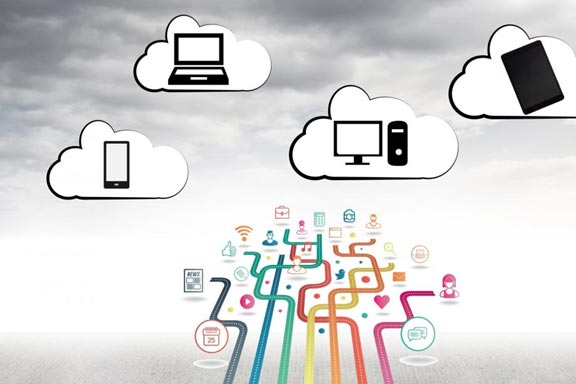Deciding to move QuickBooks to the cloud comes with a lot of daunting decision-making. This move requires you to modify your organization’s entire IT department. Nonetheless, many accounting and CPA firms are making this shift.
Cloud hosting offers the ability to manage accounting anytime and from anywhere in the world benefiting accountants to perform various financial activities with ease. The cloud can give a better idea about your investments and allow accountants to improve collaboration through multi-user features.
While cloud technology is garnering attention in the IT industry, there are bouts of insecurity among SMBs (Small and Medium Businesses). Here are four reasons stopping you from hosting QuickBooks Desktop in the cloud.
Reason # 1: You Don’t Know About Cloud Technology
You may be using Cloud technology without realizing it. Sending emails, online banking, Google document, and all such services use cloud technology. While the term is relatively new, the technology has been evolving for a long time.
Cloud, simply put, means to access and store data on the internet instead of your computer’s storage space. It revolves around delivering hosted services over the internet.
A private cloud is an accessible cloud system built on an organization’s infrastructure, and only a single client can operate it.
Hybrid Cloud is an amalgamation of in-house and outsourced cloud services. These are integrated into a service that uses both public and private clouds to perform specific and distinct functions within an organization.
The market forecast suggests that the public cloud’s market share will reach approximately $354.6 billion by 2022. Building, maturing, and implementing cloud strategies is expected to be a top priority for businesses in years to come.
Reason # 2: Cloud Hosting Isn’t Secure
Storing your data in your office is riskier than storing it in the cloud. Malware, hacking, identity theft, and phishing are some of the main concerns of shifting your QuickBooks to the cloud.
This data can easily become a target for such malicious activities. However, if you have a reliable cloud service, you can get a high-quality data security system and save your sensitive data from attack. Even if you opt for a shared cloud service, your cloud service will provide you with an option to have a separate server.
Reason # 3: You Think You’ll Lose Control Over Your Data
Just because your data isn’t physically present in front of you doesn’t mean that you can’t access your data. With cloud hosting, you can control your data better. It’s easier to control and manage your data and files with a web-based control panel. You’re saving yourself from the everyday hassles of coordinating with the IT department and increasing your focus on your business activities.
Reason # 4: Cloud Hosting is Expensive, and Only Big Businesses Can Afford It
It’s just a myth. In reality, you can easily increase and decrease your cloud storage. For that, you don’t have to buy additional infrastructure. You can ask your service provider about your requirements, and they can alter your resources within minutes.
Instead of paying huge chunks of money to buy new software and IT equipment, SMBs can flexibly scale their usage with Cloud. SMBs can pay a flat monthly rate, and it adds to the operational expense for them.
According to the Global Cloud Survey: The Implementation Challenge, cost-saving is the cloud’s best feature. 7 in 10 responses either ‘strongly agreed’ or ‘agreed’ that investing in the cloud has significantly lowered costs and delivered efficiencies.
Infrastructure as a Service (IaaS) is a delivery model where a business outsources IT equipment like hardware, server, and storage. While businesses pay based on use, the service provider is responsible for running and maintaining it.
Platform as a Service (PaaS) is a cloud computing section allowing developers to build applications and services over the internet. Cloud hosts these services, and people can access them through a web browser.
Software as a Service (SaaS) is a delivery model in which a service provider hosts applications, and internet users can have access to them. It allows for a major departure from an on-site software distribution model.
A research study conducted in 2011 pointed out that IaaS can shift the infrastructure’s expenditure for IT tasks from CAPEX to OPEX. Because of a highly standardized infrastructure and utilization levels, IaaS showcases an industrialized offering providing computing resources at a low price.
Cloud Expenditure (CAPEX): It’s a business expense for the benefit of the company’s future. It includes expenditure done on machinery, equipment, and building so that their value increases with time.
Operational Expenditure (OPEX): It refers to expenses needed for the everyday functioning of your business, like maintenance, repair, utilities, and wages.




